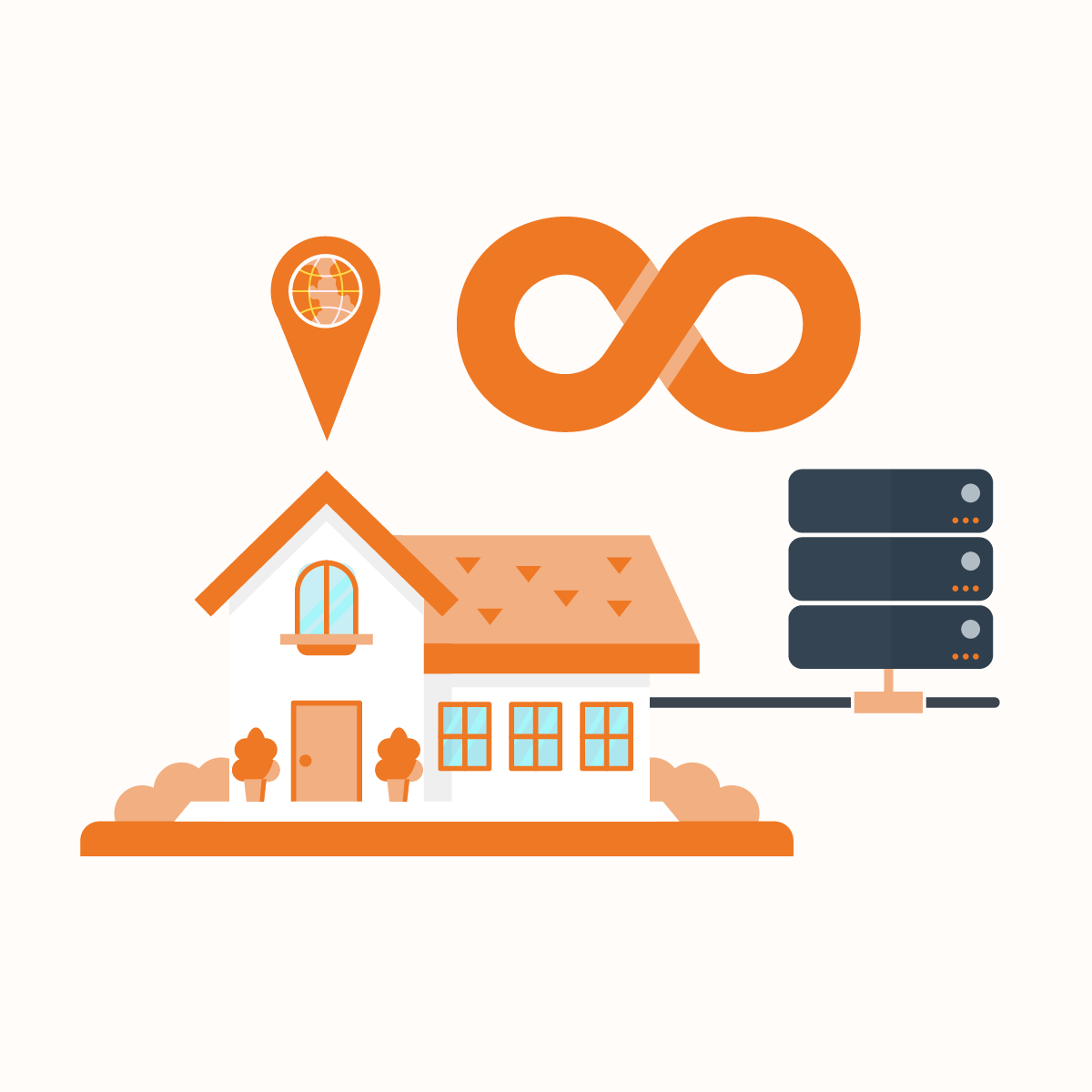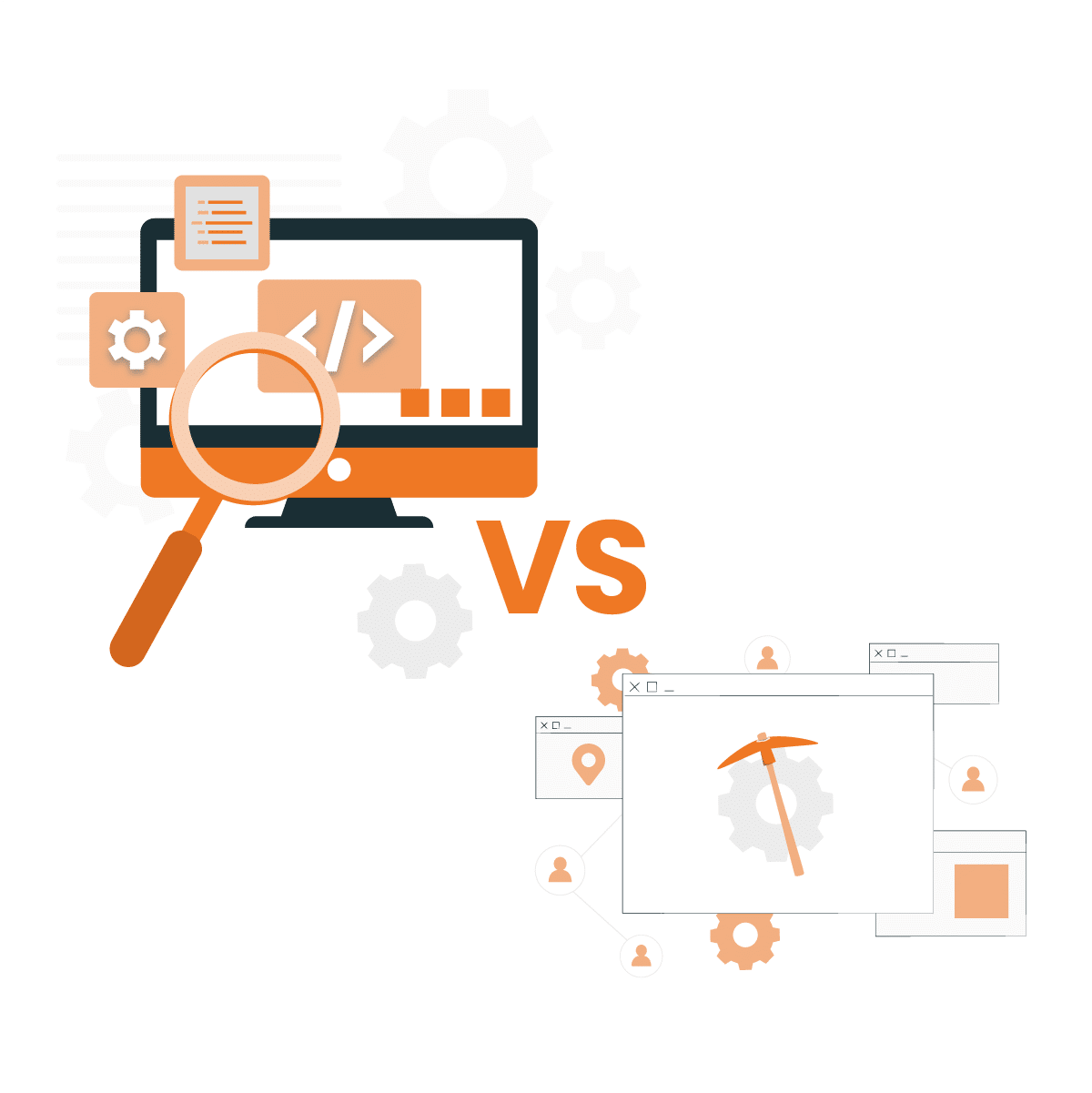This blog post presents a collection of thoughts on why you would need residential proxies to scrape Google search results (SERP).
There was an SEO blogger a while back who said that his ranking for a keyword temporarily increased after he told all his blog followers to search for the keyword and click on his result. The ranking increase is based on the concept that CTR from the SERPs is one of the general ranking factors. If lots of people click your result, then Google’s algorithm assumes that your result is better than the ones next to it, and ranks it higher.
The General Definition of a Proxy
Residential proxies (like any other proxy) act as a middle-man between a personal computer and another server or server-network.
A proxy server fakes the signature of a personal computer. There are various use cases for using a proxy server.
A few examples:
-The proxy user wants to access Geo-targeted content
-The user wants to stay anonymous
-The user wants to get around blocking mechanisms.
What is a Residential Proxy?
Generally, you have to differentiate between two different proxy types:
Residential Proxies are real residential IPs that are distributed to individuals by internet service providers (ISP). Each residential IP address is bound to a dedicated desktop or mobile device and contains information about the device’s ISP, location, and Network.
The unique thing about residential IPs is that they are usually perceived as the IP addresses of real people. Hence, they are ideal for accessing sites that are trying to minimize traffic from IP addresses that are related to data centers and scraping activities.
Scrape Google Search Results Using Residential IP Proxy Network
As written above, residential IPs are usually granted initial access to protective websites. However, these sites tend to check user behavior throughout the user session continuously.
Let’s say you are trying to scrape 100 pages from a website that has imposed advanced anti-scraping measures. Using a residential proxy will allow you to scrape the first few pages. At that point, the server is going to notice that your actions are programmatic and inhuman. Hence, it might block your IP or confront you with CAPTCHAs.
This is where residential proxy networks come in. Residential proxy networks consist of a range of residential IP addresses. To prevent a webserver from noticing your programmatic user behavior, the IP address is rotated after every request.
Legal Considerations When Using Residential Proxies
By this stage, you should have a good idea of what residential proxies are and how to choose the best solution for projects that requires scraping Google search results. However, there is one consideration that many people overlook when it comes to effectively scrape Google search results with residential proxies is the legal aspect.
The act of using a residential proxy IP to visit a website is legal all around the world; However, there are a couple of things you need to keep in mind to make sure you don’t stray into a grey area (between legal and illegal).
Having a robust proxy solution is akin to having a superpower, but it can also make you sloppy. With the ability to make a huge volume of requests to a website without the website being able to identify you quickly, people can become greedy and overload a website’s servers with too many requests, which is never the right thing to do according to Google’s SERP algorithm.
If you are a web scraper, you should always be respectful to the websites you are willing to scrape. No matter the scale or sophistication of your web scraping operation, you should always comply with web scraping best practices to ensure your spiders are being “polite” and cause no harm to the websites you are scraping. If the website informs you or the proxy provider that your scraping is burdening their site or is unwanted, you should limit your requests or stop your process of scraping, all of which depends on the complaint received. So long as you play safe, it’s much less likely you will run into any legal issues.
The other legal consideration you need to make when using residential or mobile IPs is whether or not you have the IP owner’s explicit consent to use their IP for web scraping
As GDPR defines IP addresses as personally identifiable information, you need to ensure that any EU residential IPs you use as proxies are GDPR compliant. This means that you need to ensure that the owner of that residential IP has given their explicit consent for their home or mobile IP to be used as a web scraping proxy.
If you own your own residential IP’s then you will need to handle these permissions yourself. However, if you are obtaining residential proxies from any 3rd party service provider, then you need to ensure that they have got a valid agreement and are in compliance with GDPR before using the proxy for your web scraping project.







